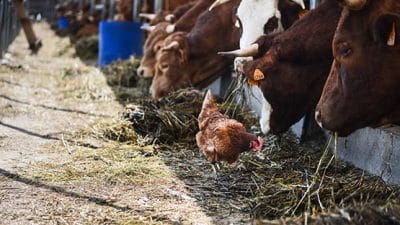
This is bad news for most Virginia farmers, but consumers are not affected.
“The price that the farmer receives for grain contributes such a small portion of the consumer’s price that consumers won’t see much effect,” on retail prices, explained Jonah Bowles, Virginia Farm Bureau Federation senior agriculture market analyst. “For example, there are only seven cents worth of wheat in a loaf of bread and three and a half cents worth of corn in a box of cornflakes. So price changes to farmers mean very little to consumers.”
Overall, retail food prices have remained basically flat from a year ago, according to the USDA’s Economic Research Service. The Consumer Price Index for food at home only rose about .2 percent. Dairy products, pork, fish and seafood products saw the largest price decreases, while egg prices rose 22 percent from the end of 2014.
However, Bowles said prices in the meat case may decline a bit in the grocery store this summer.
“Livestock is not processed to the same degree that grain crops are before reaching the consumer,” he said. “So with the price of beef, pork and poultry, consumers can expect lower prices.”
The downward trend for most agriculture commodity prices is troubling, Bowles said, but it’s also important to look at price trends over time. Even though corn prices are averaging $4 a bushel, soybean prices are $10 a bushel and wheat is going for $5 a bushel, those prices are still higher than they were a decade ago. So good marketing and financial planning can help a grower adapt to the lower prices.
“There are going to be times when a farmer loses money, there will be times when he gains that back and then some,” Bowles said. “But if we have a consistently weak farm economy, we’ll start to be more dependent on imports as more U.S. farmers go out of business. And we don’t want that to happen.”










